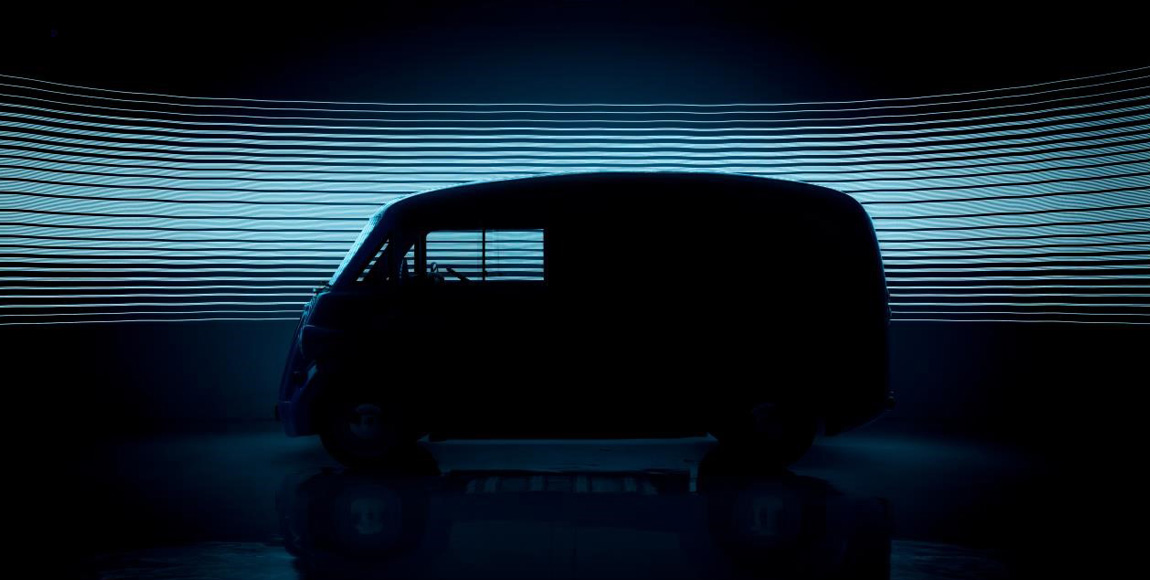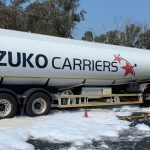Morris badge makes a comeback

Following two years of development, a prototype of an electrically powered, retro-styled Morris delivery van that’s earmarked for production has been unveiled in England
United Kingdom (UK)-based Morris Commercial, a newly established automotive engineering and manufacturing start-up, has revealed an electrically powered Morris JE – a delivery van which resembles the iconic British commercial vehicle popular in the 1950s and 60s.
Boasting a full-electric, lithium-ion battery powertrain, the new Morris is said to have been designed as a premium product that features good functionality and a practical driving range. According to a statement issued by the manufacturer, the vehicle benefits from a lightweight, modular chassis – making it highly adaptable for future derivatives – and a body made entirely of carbon fibre. “The result is outstanding power-to-weight efficiency, which fully maximises the range of the vehicle,” the statement says.
The original Morris J-type has long been referred to as the ultimate, iconic British van. Introduced at the Earls Court Motor Show in London in 1948, the model was perceived to represent the archetypal big-little van, featuring attractive styling and good load capacity. Aside from its practicality and reliability, it was popular for promotional and advertising purposes thanks to its distinctive styling.
“The J-type was often seen resplendent in distinctive colour schemes and company liveries and was often used for major advertising and promotional campaigns. Exported around the world to over 22 countries, the original van earned international recognition, and today many are still in use as ice cream vans and for food retailing and are still used in film and advertising campaigns,” the statement says.

Having secured the rights to the Morris Commercial brand name, the newly established UK start-up wanted to revive the much-respected British brand with a series of all-electric vehicles, leading to the introduction of the Morris JE. “The model successfully takes the essence of the original, iconic design and reimagines it as an all-new, sustainable vehicle for the 21st century,” the statement says.
The project, which is said to have been led by an experienced team of established automotive designers and engineers, remained a well-kept secret during the development phase, which has resulted in the development of the fully operational engineering prototype.
According to the statement: “The new vehicle is not a replica of a 70-year-old design, but it takes the DNA and values of the original van and brings them up to date in a fun, funky and contemporary way. Having designed the vehicle from the ground up as a full-electric vehicle, the company’s ethos is set squarely on delivering products that utilise the best available zero emissions technologies with exceptional engineering integrity.”
Dr Qu Li, CEO and founder of Morris Commercial, says the prototype represents two years of intensive development. “I am so pleased to have reached this stage,” he says. “It’s been a fantastic journey and I am extremely proud of what the whole Morris Commercial team and its incredible suppliers have achieved.”
According to Li, the prototype has undergone extensive road tests, bringing to an end to the first phase of the development project. “We still have a little way to go to bring the project to full production, but we have the team and the product to make the JE an enormous success. As a business we are committed to environmental sustainability and we are trailblazing a new approach to the production of appealing, fully electric commercial vehicles.”
- The original Morris Commercial Cars Limited was a British manufacturer of commercial vehicles established by William Morris, founder of Morris Motors Limited. Morris bought the assets of Birmingham-based axle manufacturer EG Wrigley & Co in 1923. Until that point a small number of commercial vehicle variants of Morris cars had been built at the Morris plant at Cowley, but with the newly acquired premises in Foundry Lane, Birmingham, serious production began. In 1932 the business moved a few miles across the city to the former Wolseley factory in Adderley Park. In 1936, Morris Commercial Cars Limited became part of Morris Motors Limited with use of the Morris Commercial brand name continuing until 1968 when British Motor Holdings, by then the parent of Austin as well as Morris, merged with the Leyland Motor Corporation to form the British Leyland Motor Corporation.
Published by
Focus on Transport
One Comment
Leave a comment Cancel reply
focusmagsa




Imagine a retro-electric version of something like a VW Kombi…now that would be cool.